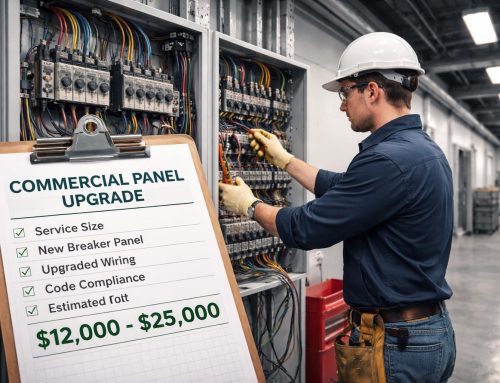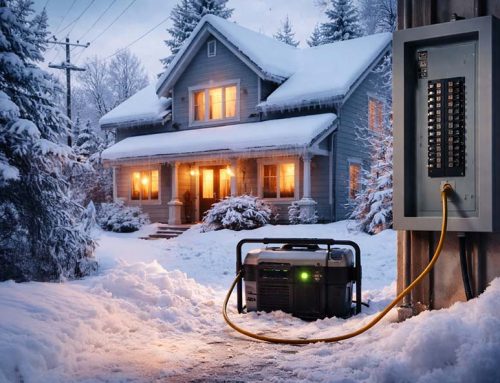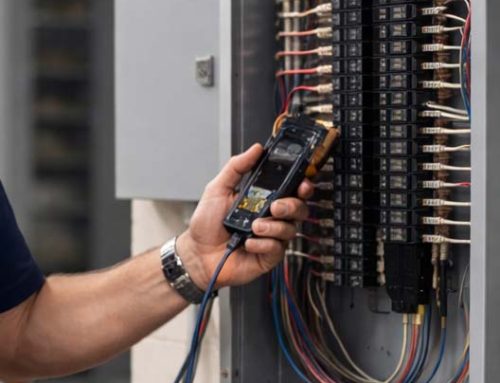Electricity powers nearly every aspect of our modern lives, from our homes to our workplaces. Behind the scenes, ensuring everything runs smoothly and safely, are skilled electricians. However, not all electricians are the same. Two primary types cater to different sectors: commercial and residential electricians. Understanding the distinctions between these two can help you choose the right professional for your needs, whether you’re a homeowner needing a new wiring installation or a business owner planning an office renovation.
Scope of Work
Residential Electricians:
Residential electricians focus on homes, apartments, and other living spaces. Their tasks typically include:
- Installing, maintaining, and repairing electrical systems in homes.
- Wiring for new constructions and remodels.
- Upgrading electrical panels to meet modern demands.
- Installing lighting fixtures, ceiling fans, and home automation systems.
- Troubleshooting and fixing electrical issues in household appliances and wiring.
Residential electricians often work on lower voltage systems, typically 120/240 volts, and must be familiar with the unique challenges of home environments, such as older wiring and space constraints.
Commercial Electricians:
Commercial electricians handle electrical systems in commercial buildings, such as offices, retail stores, restaurants, and factories. Their responsibilities include:
- Designing and installing electrical systems for new commercial constructions.
- Maintaining and upgrading complex electrical systems to ensure compliance with safety standards.
- Installing and servicing commercial lighting, security systems, and fire alarms.
- Working on high-voltage systems and specialized equipment, such as generators and industrial machinery.
- Managing large-scale projects and collaborating with architects, engineers, and other professionals.
Commercial electricians deal with higher voltage systems and more complex wiring setups, requiring a deeper understanding of electrical theory and the ability to work with more intricate and powerful systems.
Work Environment
Residential Electricians:
Residential electricians typically work in homes, which can range from single-family houses to large apartment complexes. Their work environment often involves:
- Tight spaces, such as attics, basements, and crawl spaces.
- Navigating through existing structures, which may require innovative solutions for running wires and installing new systems.
- Direct interaction with homeowners, requiring good communication and customer service skills.
Commercial Electricians:
Commercial electricians work in a variety of settings, including:
- Construction sites for new commercial buildings.
- Large and busy environments like office buildings, shopping centers, and factories.
- Outdoor locations for lighting and power supply installations.
Their work environment is usually more dynamic and may involve working at heights, in confined spaces, and sometimes under time constraints to minimize business disruption.
Training and Certification
Residential Electricians:
To become a residential electrician, one typically completes:
- A high school diploma or equivalent.
- An apprenticeship program, which combines classroom instruction with on-the-job training.
- Licensing exams, which vary by state and locality, to ensure knowledge of the National Electrical Code (NEC) and local building codes.
Commercial Electricians:
The path to becoming a commercial electrician is similar but often requires additional training:
- A more extensive apprenticeship program that includes more complex electrical systems and higher voltage work.
- Additional coursework in commercial electrical systems, including safety protocols and regulations specific to commercial settings.
- Certification and licensing that may demand higher qualifications and experience levels, depending on the jurisdiction.
Tools and Techniques
Residential Electricians:
Residential electricians use standard tools like pliers, wire strippers, voltage testers, and drills. Their techniques focus on:
- Running cables through walls and ceilings.
- Installing outlets, switches, and fixtures.
- Ensuring all installations meet safety standards and are user-friendly.
Commercial Electricians:
Commercial electricians employ a broader range of tools and often more specialized equipment, such as:
- Conduit benders, which help in running electrical conduit for protection and organization of wiring.
- Industrial-grade testers and diagnostic tools for high-voltage systems.
- Techniques that include working with large-scale electrical panels, intricate wiring diagrams, and ensuring compliance with more stringent safety codes.
Conclusion
Both residential and commercial electricians play crucial roles in their respective fields, ensuring that our homes are comfortable and our businesses run efficiently. While their core skills overlap, their specializations, work environments, and the complexity of tasks differ significantly. Whether you need an electrician for a home renovation or a large commercial project, understanding these differences can help you hire the right professional for the job, ensuring safety, efficiency, and quality workmanship.






